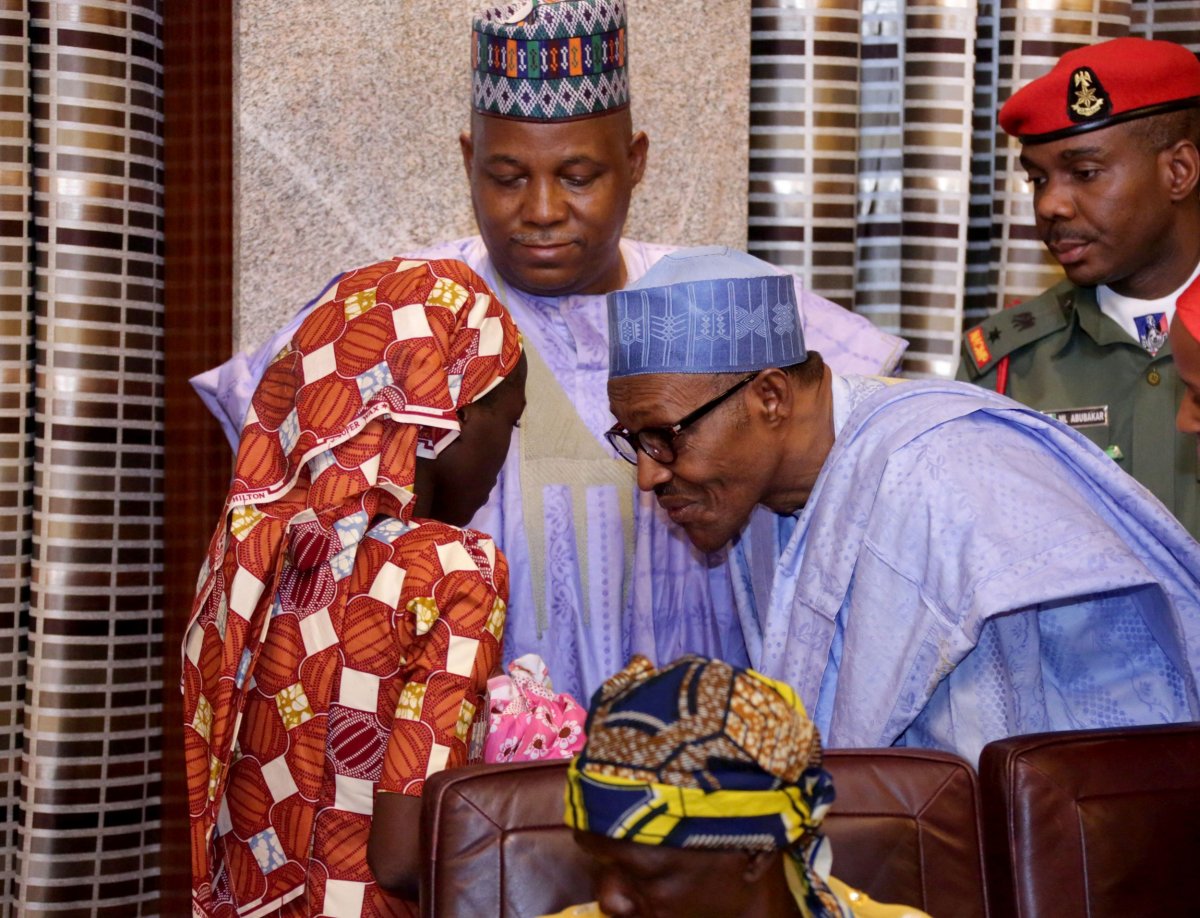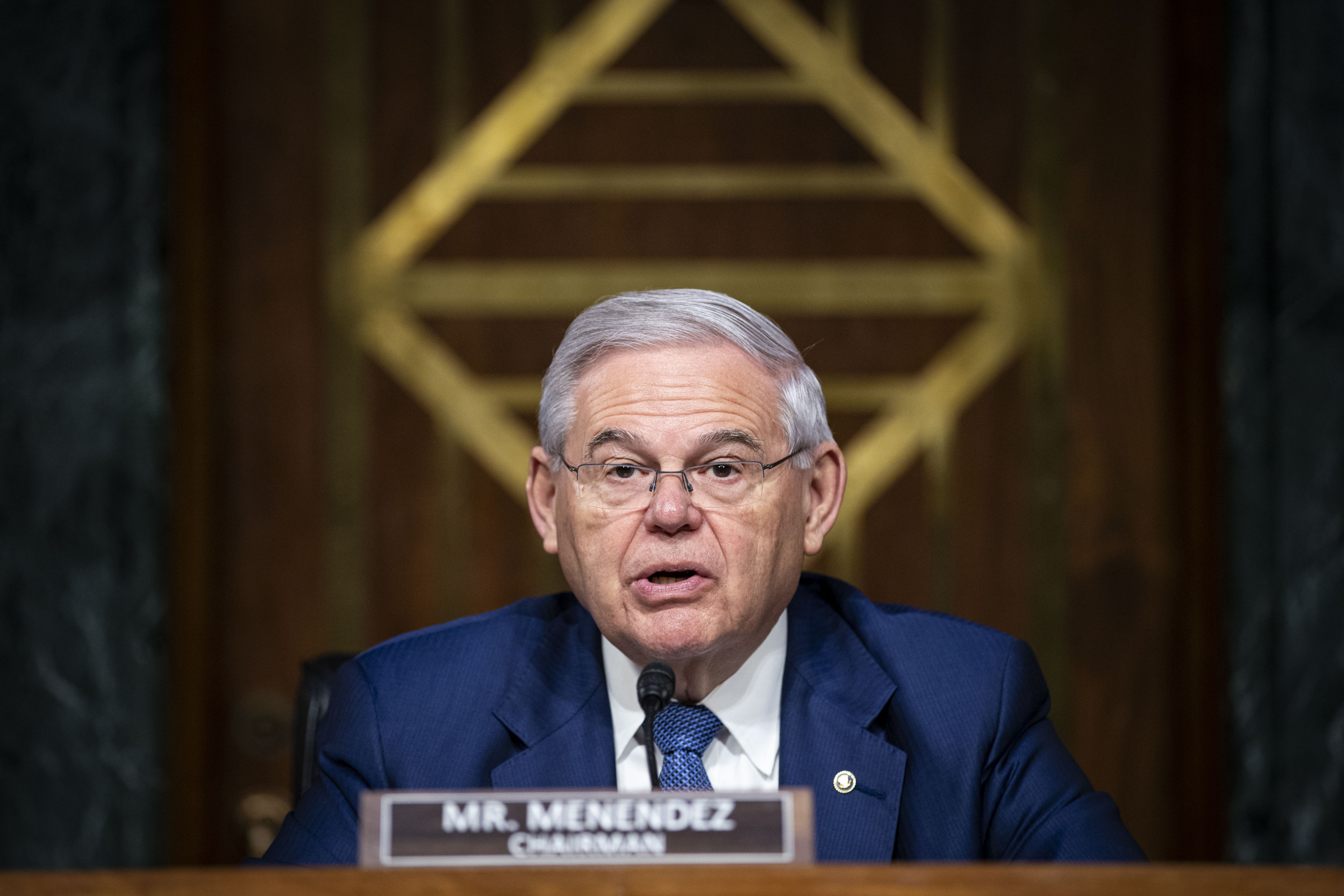
In April 2014, Boko Haram militants ransacked the Government Secondary School in Chibok in northeast Nigeria. The group, whose name roughly translates to "Western education is forbidden," abducted 276 schoolgirls who were preparing for examinations.
The incident sparked international outcry and has led to soul-searching from two successive Nigerian presidents. But three years later, 195 of the girls are still missing.
Newsweek catalogs what happened to the Chibok girls—a history littered with missed opportunities and unfulfilled promises.
Before the Kidnapping: The Rise of Boko Haram
Boko Haram launched an armed insurgency in 2009, following the death of its founder Mohammed Yusuf in police custody. The group regularly attacked civilian targets—including schools and churches—in a bid to rid northern Nigeria of what it perceived as Western influence. By May 2013, then Nigerian President Goodluck Jonathan had declared a state of emergency in three northern states.
April 14, 2014: The Abduction
On the night of April 14, Boko Haram fighters attacked Chibok, a remote village in Nigeria's Borno state. The militants burned down many houses, but their main target was the school, where hundreds of girls aged 16-18 were preparing for their final examinations. The militants kidnapped 276 girls from their school dormitories, loading them onto trucks before taking them to a stronghold. During or shortly after the abduction, 57 of the girls managed to escape Boko Haram, leaving a total of 219 in captivity.

May 4, 2014: President Jonathan Speaks
Almost three weeks after their abduction, Jonathan spoke out on the girls for the first time. "Wherever these girls are, we will surely get them out," said Jonathan.
May 5, 2014: "We Will Sell Them"
Boko Haram leader Abubakar Shekau released a video in which he celebrated the kidnapping of the girls. "God instructed me to sell them, they are his properties and I will carry out his instructions" said Shekau in the video. Local elders also claimed that some of the girls had been sold as brides to Boko Haram fighters for a bride price of around $12.
Early May 2014: A Hashtag Campaign
The kidnapping sparked international condemnation, with world leaders and celebrities supporting a social media campaign entitled #BringBackOurGirls. Former U.S. first lady Michelle Obama, ex-British Prime Minister David Cameron and humanitarian Malala Yousafzai were among those to lend their support to the campaign.
Our prayers are with the missing Nigerian girls and their families. It's time to #BringBackOurGirls. -mo pic.twitter.com/glDKDotJRt
— First Lady- Archived (@FLOTUS44) May 7, 2014
In Nigeria, the Bring Back Our Girls campaign group clashed with Jonathan's administration; the former Nigerian president accused the group of manipulating the "victims of terrorism."
Late May 2014: Nigeria's Military Under Scrutiny
Nigeria's then chief of defense staff, Alex Badeh, claimed that the military knew where the girls were being held, but that it could not rescue them for fear of the girls being killed in crossfire or executed by the jihadis. Earlier in May, Amnesty International claimed that the military had a four-hour advance warning of the Chibok abduction, but failed to act on it as it did not have troops available to send to the town. Nigeria's government cast doubt on the Amnesty report.
Mid-2014: Missed Opportunities
The British Royal Air Force conducted a reconnaissance mission named Operation Turus in northern Nigeria in the months after the attack. A source told the Observer in March 2017 that the girls were located "in the first few weeks" of the mission, but that the Nigerian government declined, as the matter was seen as requiring a Nigerian solution. Jonathan denied turning down the offer.
The former British high commissioner to Nigeria, Andrew Pocock, also told The Sunday Times that British and U.S. surveillance located a group of around 80 girls in the Sambisa forest, a Boko Haram hideout in Borno state, several months after the kidnapping. But since the Nigerian government had not officially requested assistance, Pocock said the Western countries were unable to intervene.
March 2015: A New Rescuer-in-Chief
Nigeria held a general election, in which Muhammadu Buhari defeated the incumbent Jonathan. The election constituted Nigeria's first peaceful transfer of power since independence in 1960. At his inaugural speech in May 2015, President Buhari said: "We cannot claim to have defeated Boko Haram without rescuing the Chibok girls and all other innocent persons held hostage by [the] insurgents."

Mid-late 2015: Boko Haram is Pushed Back
Under Buhari's watch, the Nigerian military—aided by regional security forces—gradually reclaimed land from Boko Haram, which had controlled territory equivalent to the size of Belgium at its peak in early 2015. On December 24, 2015, Buhari told BBC News: "Technically, we have won the war [against Boko Haram]." The president's statement prompted outrage from the #BringBackOurGirls campaign, given Buhari's inaugural promise not to say the war was over until the girls were freed.
April 2016: Signs of Life
Two years after the kidnapping, Boko Haram released a proof-of-life video showing more than a dozen of the girls. Several mothers of the missing girls identified their daughters in the video, which marked the first public sighting of the girls since May 2014. In the video, the girls made an apparently-scripted appeal for the Nigerian government to meet Boko Haram's demands for their release.
May 18, 2016: The First Escapee
Civilian vigilantes found Amina Ali Nkeki, 21, along with her baby girl in the Sambisa Forest. Nkeki was identified as one of the Chibok girls, the first to escape since the abduction and the initial group that fled. Nkeki reportedly said that all but six of the Chibok abductees were still alive. She later told the Thomson Reuters Foundation that she missed her husband, Mohammed Hayatu, a suspected Boko Haram member who was found with her at the time of her rescue.
Shortly after Nkeki's escape, the Nigerian military claimed it had rescued a second of the Chibok girls, but her identity was not confirmed by activists.

August 8, 2016: Call for Help
Boko Haram published a video showing dozens of schoolgirls, apparently some of those kidnapped in Chibok. A masked fighter questions one girl, who names herself as Maida Yakubu. The girl says that the Nigerian military has killed some of her friends in airstrikes targeting Boko Haram and urged the government to release the group's imprisoned fighters in return for their freedom. The military later denied it had killed any of the Chibok girls.
August 2016: Boko Haram Divided
A publication linked to the Islamic State militant group (ISIS)—to which Boko Haram leader Shekau had pledged allegiance in 2015—proclaimed a new leader for ISIS's West Africa province, named Abu Musab al-Barnawi. The declaration was rejected by Shekau, who maintained that he was the rightful leader of the militant group. Boko Haram has since fractured into two factions: one led by Shekau, and one led by Barnawi that calls itself the Islamic State West Africa Province, or ISWAP.
October 2016: Negotiations Pay Off
Twenty-one of the Chibok girls were released, following negotiations mediated by the Swiss government and the International Committee of the Red Cross. The Nigerian government denied that imprisoned Boko Haram leaders were released as part of the deal. A spokesman for Buhari said the Barnawi faction of Boko Haram was ready to negotiate the release of 83 more of the girls, but nothing has yet come of the proposed talks.
November 5, 2016: Another Girl Found
A Nigerian military spokesman announced that one of the Chibok girls, named as Maryam Ali Maiyanga, was among a group of escapees from a Boko Haram base in the Sambisa forest who were rescued by soldiers. BBOG confirmed Maiyanga's identity, saying she was abducted along with her twin, who has yet to return, in the Chibok kidnapping. The girl was found with a 10-month-old son, the military said.
January 5, 2017: The Latest Rescue
While interrogating some 1,000 suspects detained in military raids in the Sambisa forest, the army identified Rakiya Abubakar, another of the Chibok girls, according to an army spokesman. She was found with a six-month-old baby and her identity was confirmed by BBOG. Abubakar's release brought the total number of Chibok girls remaining in captivity down to 195.
April 13, 2017: Three Years On
The day before the three-year commemoration of the kidnapping, Buhari assured parents and activists that the Nigerian government had reached out to the girls' captors and was doing all it could to obtain the girls' release. "The Federal Government is willing to bend over backwards to secure the release of the remaining Chibok girls," said Buhari.
Uncommon Knowledge
Newsweek is committed to challenging conventional wisdom and finding connections in the search for common ground.
Newsweek is committed to challenging conventional wisdom and finding connections in the search for common ground.
About the writer
Conor is a staff writer for Newsweek covering Africa, with a focus on Nigeria, security and conflict.
To read how Newsweek uses AI as a newsroom tool, Click here.





